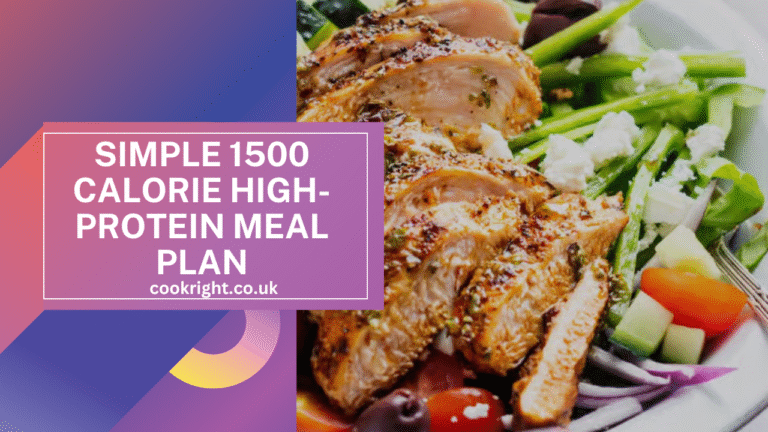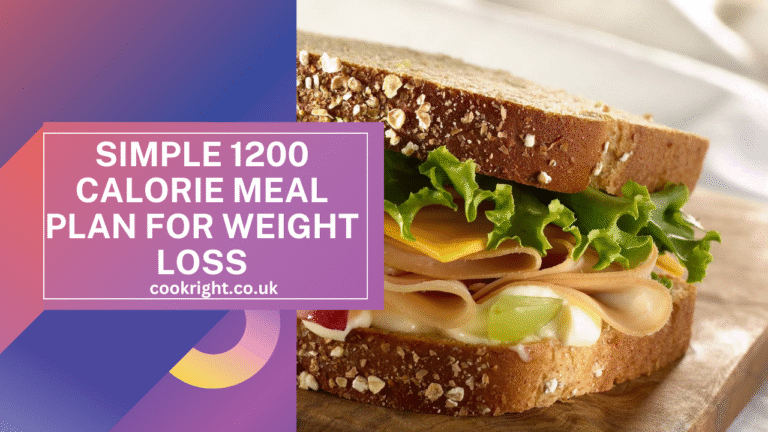Managing diabetes involves making mindful dietary choices, and for many, this can be particularly challenging when traditional foods are central to one’s culture and lifestyle. Nigerian cuisine, known for its rich and diverse flavors, can be adapted to suit the dietary needs of diabetic patients without sacrificing taste. This blog post will provide a detailed, day-by-day Nigerian food timetable tailored specifically for diabetic patients. We’ll focus on balanced meals, portion control, and selecting ingredients that help maintain blood sugar levels.
Understanding Diabetes and Diet
Diabetes is a chronic condition where the body either doesn’t produce enough insulin or cannot effectively use the insulin it produces, leading to elevated blood sugar levels. The cornerstone of managing diabetes is through diet, exercise, and medication. Diet plays a significant role in controlling blood sugar levels, so understanding how to balance carbohydrate intake with other nutrients is essential.
Key dietary principles for diabetics include:
- Low Glycemic Index (GI) Foods: Opt for foods that have a low to moderate glycemic index, as these release glucose slowly into the bloodstream, helping to maintain steady blood sugar levels.
- High Fiber Foods: Fiber slows down the absorption of sugar and helps improve blood sugar levels. It also aids in digestion and prevents constipation.
- Healthy Fats and Proteins: Including lean proteins and healthy fats can help keep you full longer and stabilize blood sugar.
- Portion Control: Eating in moderation is crucial; even healthy foods can cause blood sugar spikes if consumed in large quantities.
- Regular Meal Timing: Consistent meal times help regulate blood sugar levels and prevent extreme highs and lows.
Weekly Nigerian Food Timetable for Diabetic Patients
Below is a comprehensive weekly timetable, including breakfast, lunch, dinner, and snacks that align with the dietary needs of diabetic patients. The timetable includes a variety of Nigerian foods modified for better blood sugar control.
Monday
Breakfast:
- Oatmeal with Nuts and Berries: Cook whole oats (avoid instant varieties) with water or unsweetened almond milk. Add a sprinkle of chia seeds, almonds, and a handful of fresh berries.
- Herbal Tea: Mint or green tea without sugar.
Lunch:
- Vegetable Soup with Grilled Chicken: A soup made with ugu (fluted pumpkin leaves), spinach, and okra. Add grilled chicken breast for protein. Avoid adding too much oil or palm oil.
- Swallow Option: Pair with a small portion of wheat amala or unripe plantain swallow.
Dinner:
- Grilled Fish with Steamed Vegetables: Tilapia or mackerel grilled with herbs and spices, served with steamed broccoli, carrots, and bell peppers.
- Brown Rice or Quinoa: A small portion to accompany the fish.
Snack:
- Sliced Cucumber and Carrot Sticks: A light and crunchy snack that is low in carbs.
Tuesday
Breakfast:
- Moin Moin (Bean Pudding): Made from steamed, blended beans with spices, and garnished with a small amount of shredded fish or boiled egg.
- Peppermint Tea: Sugar-free.
Lunch:
- Ofada Rice with Tomato and Pepper Sauce: Ofada rice is a healthier alternative to white rice. Serve with a low-oil, tomato, and pepper sauce with a side of steamed leafy greens.
Dinner:
- Efo Riro (Spinach Stew) with Grilled Turkey: A hearty spinach stew cooked with tomatoes, onions, and a small amount of oil, served with grilled turkey.
- Swallow Option: Serve with a small portion of wheat amala or oat fufu.
Snack:
- Mixed Nuts: A small handful of unsalted almonds, walnuts, or cashews.
Wednesday
Breakfast:
- Akara (Bean Fritters) with Pap: Prepare akara with minimal oil, or use an air fryer. Serve with unsweetened pap (fermented corn pudding) or a low-carb alternative.
Lunch:
- Egusi Soup with Sautéed Vegetables and Fish: Egusi soup made with melon seeds, vegetables, and fish, cooked with minimal palm oil.
- Swallow Option: Pair with unripe plantain swallow or cauliflower fufu.
Dinner:
- Yam Porridge (Asaro) with Leafy Greens: Made with chunks of yam, tomatoes, and spinach, cooked with minimal oil.
Snack:
- Greek Yogurt with a Drizzle of Honey: Unsweetened yogurt with a drizzle of honey and a sprinkle of flaxseeds.
Thursday
Breakfast:
- Scrambled Eggs with Vegetables: Scramble eggs with tomatoes, onions, spinach, and bell peppers. Serve with a small slice of whole grain bread.
Lunch:
- Jollof Rice with Grilled Chicken: Use brown rice for a healthier version of Jollof. Cook with fresh tomatoes, peppers, and herbs. Add grilled chicken breast for protein.
Dinner:
- Peppered Fish with Cauliflower Rice: Grilled or baked fish seasoned with spices, served with cauliflower rice and a side of sautéed spinach.
Snack:
- Avocado Slices with a Sprinkle of Salt and Pepper: A healthy fat-rich snack to keep you full.
Friday
Breakfast:
- Boiled Plantain with Eggs and Vegetables: Unripe plantain boiled and served with a scrambled egg and mixed vegetable medley.
Lunch:
- Bitterleaf Soup with Goat Meat: A traditional Nigerian soup cooked with bitterleaf, goat meat, and stockfish, served with a small portion of wheat amala or oat fufu.
Dinner:
- Okra Soup with Tilapia: Okra soup cooked with minimal oil, tomatoes, and peppers, served with grilled tilapia.
- Swallow Option: Serve with a small portion of unripe plantain swallow or wheat amala.
Snack:
- Fresh Fruit Salad: A small bowl of mixed fruits like pawpaw, watermelon, and pineapple. Avoid high-sugar fruits like bananas and mangoes.
Saturday
Breakfast:
- Plantain Frittata: A frittata made with unripe plantain, eggs, and a variety of vegetables like bell peppers, onions, and spinach.
Lunch:
- Beans and Corn Pottage (Adalu): Cooked with a mix of beans and corn, tomatoes, and a small amount of oil. Serve with a side of steamed spinach.
Dinner:
- Vegetable Stir-Fry with Tofu or Chicken: A stir-fry of mixed vegetables like broccoli, carrots, bell peppers, and snap peas with tofu or chicken.
- Serve with Brown Rice or Quinoa: Opt for a small portion.
Snack:
- Roasted Groundnuts or Tigernuts: A small handful of these nuts as a nutritious snack.
Sunday
Breakfast:
- Ogi (Pap) with Akamu and Moin Moin: A light breakfast featuring pap (preferably unsweetened) with bean pudding.
Lunch:
- Banga Soup with Fresh Fish: A traditional palm nut soup made with minimal palm oil, served with fresh fish and a side of steamed vegetables.
- Swallow Option: Pair with a small portion of wheat amala or oat fufu.
Dinner:
- Garden Egg Stew with Boiled Plantain: A stew made from garden eggs (eggplants), tomatoes, and spices, served with boiled unripe plantain.
Snack:
- Boiled Groundnuts or a Small Apple: A light and refreshing snack to end the day.
Additional Tips for Diabetic-Friendly Nigerian Meals
- Use Healthier Cooking Oils: Opt for oils like olive oil, avocado oil, or a controlled amount of palm oil.
- Reduce Salt and Seasonings: Use herbs and spices like ginger, garlic, thyme, and turmeric to flavor your food instead of excessive salt or bouillon cubes.
- Stay Hydrated: Drink plenty of water, herbal teas, or infused water with cucumber, lemon, or mint.
- Avoid Sugary Drinks and Snacks: Replace them with natural fruit juices (without added sugars) or water.
- Exercise Portion Control: Even healthy meals can cause blood sugar spikes if portions are too large.
- Monitor Blood Sugar Levels: Regularly check your blood sugar levels to understand how different foods affect you.
Conclusion
Managing diabetes through diet does not mean giving up the flavors and foods you love. With mindful choices, portion control, and a focus on low glycemic foods, you can enjoy a variety of delicious Nigerian dishes. This timetable provides a comprehensive guide to help diabetic patients maintain stable blood sugar levels while savoring the rich and diverse tastes of Nigerian cuisine. Remember to consult with your healthcare provider or a dietitian to tailor the meal plan to your specific needs.








